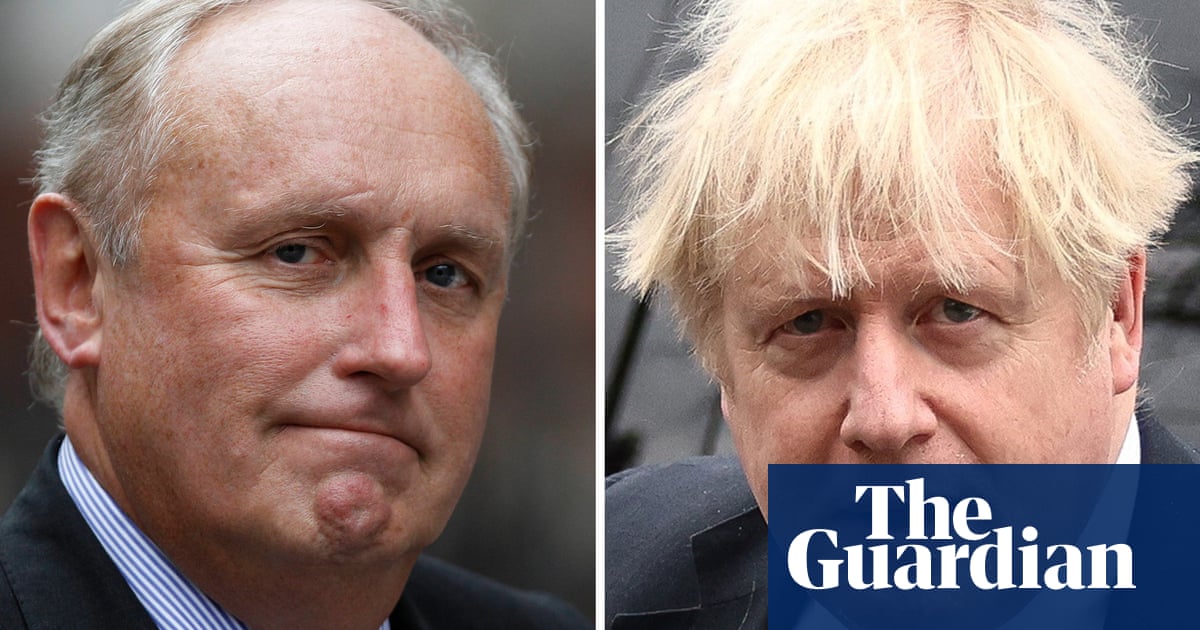
The government has restarted the recruitment process for a new chair of Ofcom after the prime minister’s favoured candidate, the former Daily Mail editor Paul Dacre, had his application rejected by an interview board.
Rather than accept the decision and choose another candidate who was approved, ministers have instead decided to start the process from scratch, allowing Dacre a second chance at the job.
The process of recruiting a chairman to run Ofcom’s board has been repeatedly delayed and damaged by briefing about the process. Fewer than 10 candidates applied for the position, with many more put off applying by Boris Johnson’s decision to make it clear last summer that he favoured giving the job to Dacre.
Although it appeared the process had been stitched-up for Dacre, when a panel of outside executives and a civil servant finally met to interview the final four candidates, they concluded that the former newspaper editor did not meet certain criteria for the job and was therefore “not appointable”.
The names of three other candidates who did pass the recruitment process were passed to the culture secretary, Oliver Dowden, for a final decision; however, they were rejected.
Ministers could have given the job to Dacre but they would have had to publicly justify the decision to overrule the board.
“In accordance with the governance code of public appointments, ministers have taken the decision to rerun the competition for Ofcom chair,” confirmed a government spokesperson.
Dacre, who edited the Daily Mail for 26 years before stepping down in 2018, has been working on his memoirs and a forthcoming series for Channel 4. The arch-critic of the BBC continues to hold an official role at the Daily Mail but has little in common with the current editor, Geordie Greig, and has publicly criticised his successor.
Although Ofcom is best known by the public for its oversight of standards in the broadcast media, it also regulates everything from the UK’s mobile phone networks to Royal Mail. It is expected to gain responsibility for regulation of social media networks such as Facebook and TikTok under forthcoming online harms legislation.
While day-to-day operation of Ofcom would remain with the chief executive, Melanie Dawes, the chairman of the board still has substantial leeway to influence the organisation’s direction.
In an unusual twist, government sources tried to suggest to the Daily Telegraph that the real reason they abandoned the recruitment process was an intervention from Nick Clegg, the former Liberal Democrat deputy prime minister who now runs Facebook’s global lobbying campaigns. He and Dacre have a longstanding enmity, dating back to Clegg’s time in politics.
The newspaper quoted an unnamed individual as saying that “public lobbying undermined the process” and that the recruitment process worked against Dacre’s desire for a more radical shake-up of the regulator and stronger approach to the BBC.
Facebook strongly denied that Nick Clegg had lobbied ministers to block Dacre’s appointment, hinting that the government was looking to shift the blame for its own decision: “In a recent meeting with DCMS officials, held at their request, Nick simply asked questions about the timing and process and stressed that Facebook hopes to continue its positive working relationship with Ofcom. Any suggestion of a lobbying campaign for or against any individual is simply false.”












